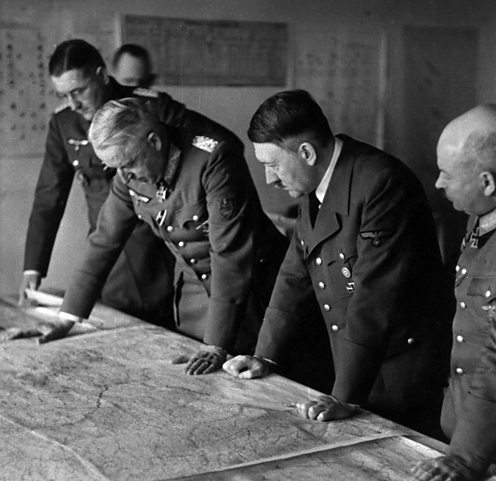Chapter 1: What makes a good Dictator?
Adolf Hitler was persuasive, always had plans, and was experienced in the mobilization of troops.
Adolf Hitler was a very persuasive person. At the beginning of every speech he would be a little nervous but then he would feel that it is the right time to get them persuaded. Hitler was in WWI and was a big cause in WWII. But because of his persuasive speeches he was able to persuade most of the Germans to being on his side.

During the second World War, Hitler used several well-thought out plans when invading or defending against enemy troops. The first occurrence of this was found at the beginning of the war, when Hitler relied on Europe's desire to prevent war to invade Poland. This introduction to what would become one of the bloodiest wars of the century was led by this first attack performed by Hitler's plan. Another historical occurrence representing the effectiveness of Hitler's plans was his rapid march to France. In order to transport his troops at a fast pace, Hitler found weaknesses in smaller countries, which could be exploited in order to attain his goal of reaching France. Belgium, having a substantially smaller army compared to Hitler's forces were no match for the supreme dictator who blasted through in order to destroy France. Hitler's plans were therefore extremely effective in his pursuit of ruling Europe.

Being in the Army himself through World War I Hitler had learned how to guide troops. When he officially became leader of the German Army he had a lot of experience and therefore knew how to guide his troops. This is proven in the bombing of Rotterdam, when Hitler guided his troops into bombing Holland. After only one day the troops of Holland had surrendered. This shows how Hitler was successfully able to guide his troops in order to win. Hitler's experience in the army therefore helped him to mobilize his troops quickly.
